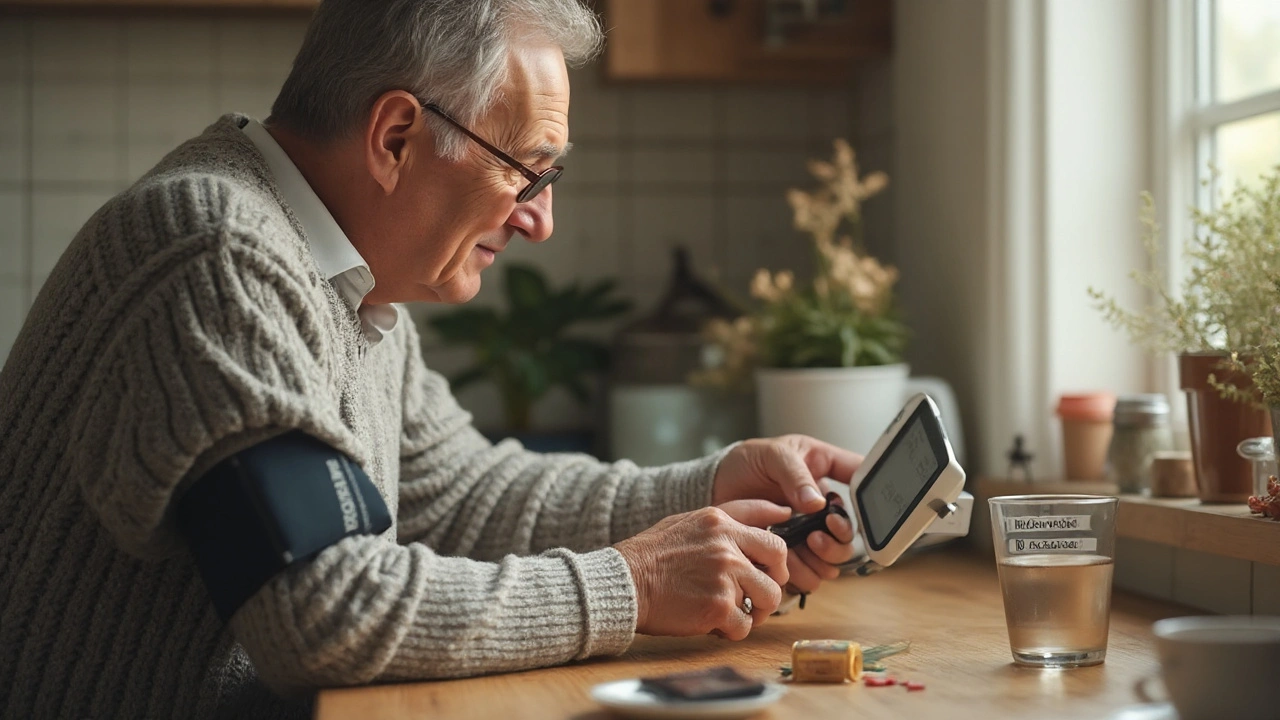Hypertension Management: Simple Steps That Actually Work
If your doctor called your blood pressure “high,” you probably wondered what to do next. The good news? You don’t need a PhD to keep numbers in check. A mix of everyday habits and the right meds can lower risk, boost energy, and save money on future health bills.
Start with the basics: diet and movement
The first line of defense is what’s on your plate and how much you move. Cut sodium to under 1,500 mg a day—think fresh veggies, lean proteins, and low‑salt sauces. Swap sugary drinks for water or herbal tea; even a small reduction in sugar helps blood vessels relax.
Exercise doesn’t have to be a marathon. Aim for 30 minutes of brisk walking, cycling, or dancing most days. You’ll see a drop of 5–8 mmHg after just a few weeks, and the effect lasts as long as you stay active.
When lifestyle isn’t enough: choosing the right medication
Most people need a prescription to hit target numbers (<130/80 mmHg for most adults). Common first‑line drugs include ACE inhibitors (like lisinopril), thiazide diuretics (hydrochlorothiazide), and calcium‑channel blockers (amlodipine). Your doctor will pick based on age, kidney health, and any other conditions.
If you’re already on a pill but still high, don’t panic. Doctors often add a second drug or switch to a newer combo—think ARB + thiazide. Recent guidelines also mention low‑dose spironolactone for resistant cases; it can shave off another 4–6 mmHg.
Remember to take meds at the same time every day, preferably with food if the label says so. Missing doses is a quick way to undo all your lifestyle work.
Monitoring and staying on track
Home blood‑pressure monitors are cheap and easy to use. Record three readings each morning and evening; average them for a true picture. If you notice spikes after salty meals or stressful days, note it—your doctor can adjust treatment faster.
Don’t forget regular check‑ups. Blood tests every 6–12 months help catch side effects early, especially kidney function with diuretics or potassium levels with ACE inhibitors.
Quick FAQs
Can I quit meds if my diet improves? Only under a doctor’s supervision. Sudden stops can cause rebound spikes.
Is coffee bad for blood pressure? Moderate caffeine (1‑2 cups) has minimal impact, but large amounts may raise it temporarily.
Do supplements help? Garlic, omega‑3s, and beetroot juice show modest benefits, but they’re not replacements for prescribed therapy.
Managing hypertension is a marathon, not a sprint. Combine steady lifestyle tweaks with the right prescription, track your numbers, and keep the conversation open with your doctor. You’ll feel the difference in energy, mood, and long‑term health—no fancy jargon required.
Best Alternatives to Metoprolol: Nebivolol, Carvedilol, and Hypertension Management
Struggling with metoprolol side effects? This guide dives deep into nebivolol, carvedilol, plus real-life lifestyle tips for managing hypertension safely and comfortably.

